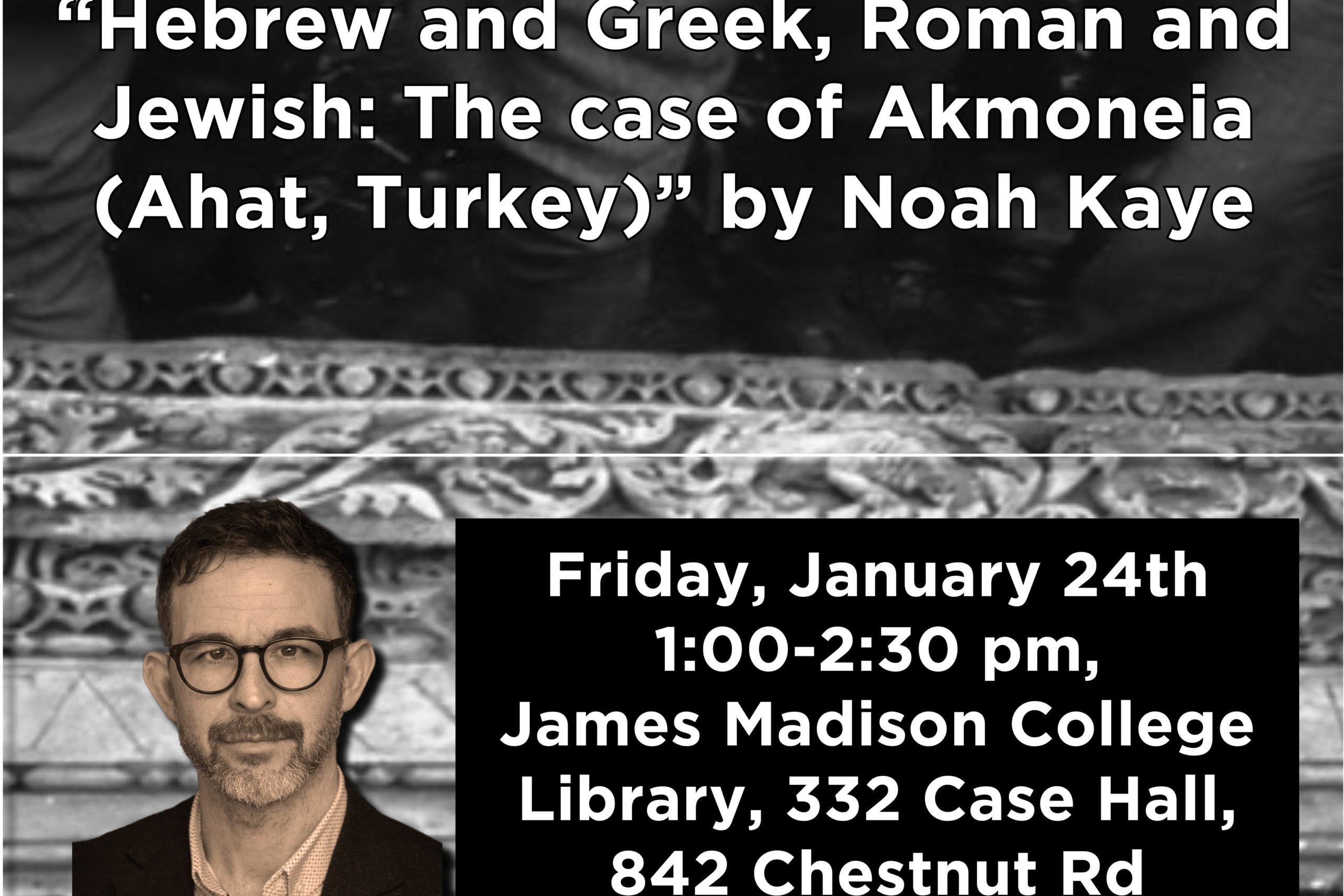
“Hebrew and Greek, Roman and Jewish: The Case of Akmoneia (Ahat, Turkey)” by Noah Kaye
Friday, January 24th 1:00-2:30 pm, James Madison College Library, 332 Case Hall, 842 Chestnut Rd
Complimentary lunch provided
Serling Institute Faculty Research Seminar – Open to All!
The rural interior of the Roman province of Asia Minor, now Turkey’s western highlands, was home to several large Jewish communities famously visited by Paul in the 1st century CE. Demographically, these communities represented a major part of the ancient Mediterranean diaspora and were large enough to influence the non-Jewish culture around them. Yet scholars have struggled to gain a perspective on their lives outside of the New Testament. The best chance we have to understand these ancient Jews on their own terms is through the inscriptions they carved in stone. I present here a forthcoming study of a rare Hebrew-Greek bilingual inscription from Akmoneia, in Roman Phrygia, which gives us precious information about their names, the way they used Hebrew, and the meaning of Jerusalem for provincial Roman Jews after the destruction of 70 CE.
Associate Professor Noah Kaye is a historian of Classical Antiquity specializing in the interactions between Greeks and non-Greeks in ancient empires. Dr. Kaye’s research has consistently explored how Jews navigated the Graeco-Roman world and their use of the Greek language. As a postdoctoral researcher, he worked on a project that re-edited Israel’s ancient inscriptions, many of which inform the social and economic history of Greek-speaking Jews. His 2021 article in the Journal for the Study of Judaism, “Purity and Property at Gezer: The Commons in a Second Temple Town,” reflects his interest in these topics.
In addition to his conference work, Dr. Kaye authored The Attalids of Pergamon and Anatolia: Money, Culture, and State Power (Cambridge, 2022), which also ties his research in Turkey to broader historical narratives, including the Hanukkah story. He has received funding from the Serling Institute’s Finifter Fund to analyze over 4,000 Jewish inscriptions in Greek, providing valuable insights into the identities, gender relations, and existence of pre-modern Jewish communities.
Dr. Kaye is also involved in cultural heritage projects in Greece and Turkey, collaborating with Israeli archaeologists and participating in efforts to document Jewish life, including the Holocaust, in modern Greece. He recently consulted on a project led by MSU’s Isthmia Excavation in Greece, focusing on Jewish life on the Isthmus of Corinth and commemorating Jewish prisoners-of-war captured during the 1941 Battle of Corinth.